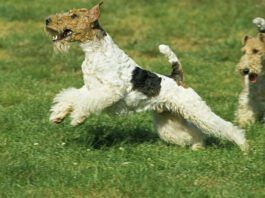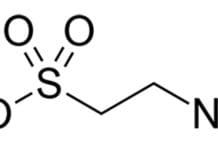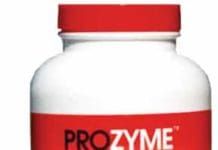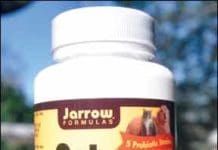DCM in Dogs: Taurine’s Role in the Canine Diet
Further, a significant number of the dogs were found to have reduced levels of circulating taurine in their blood and have responded positively to taurine supplementation. It is speculated that these cases are related to the consumption of foods that negatively affect taurine status, leading to taurine-deficiency DCM. Foods containing high levels of peas, lentils, other legume seeds, and/or potatoes were identified by the FDA as potential risk factors. These ingredients are found commonly in foods that are formulated and promoted as grain-free.""
Dog Diarrhea Causes and Remedies
The truth is, much like people, sometimes dogs just get diarrhea. Much as we do not see the doctor for every bout of diarrhea, similarly, dogs do not always need medical attention for a short-lived enteritis (inflammation of the intestines). Often, diarrhea can be managed with at-home therapy and convalescent care.
Free-Ranging Dogs Give Us Insight on Canine Protein Preferences
Anyone who lives with dogs is aware that dogs are almost universally attracted to meaty foods and treats. Trainers use these preferences to select different levels of treat value" for dogs and almost invariably
Dogs and Carbs: It’s Complicated
The question of how best to feed dogs stimulates great debate and evokes strong emotions among dog folks. (Yes, this an intended understatement.) One of the most contentiously defended viewpoints in recent years is that dogs should not be fed diets that contain digestible carbohydrate (starch). Two primary arguments are used to defend this position.
Fecal Transplants for Dogs
A healthy microbiome destroys harmful pathogens, including disease-causing viruses, fungi, bacteria, and parasites. As a result, the microbiome is the immune system's first line of defense. Differences in microbiomes help explain why some dogs exposed to diseases like parvovirus, distemper, leptospirosis, Lyme disease, canine flu, heartworm, or kennel cough get sick while others remain symptom-free.
How Important is the Digestibility of Dog Food
What is digestibility and why does it matter? Digestibility reflects a food's ability to deliver essential nutrients to the dog who eats it. This ultimately affects not only defecation quantity and quality (how much your dog poops and how the poop looks and smells), and a dog's propensity for flatulence (no explanation needed), but more importantly, a dog's long-term health and wellness. The graphic on this page summarizes how digestibility is measured using feeding trials with dogs.
The Dog is Throwing Up!: Your Guide to Dog Vomiting
When dogs feel nauseated and are about to throw up, they often drool, lick their lips, swallow excessively, and stand head down looking worried. Many dogs look for or turn to their owners when they're about to vomit, which can signal alert caregivers to move their pets to a better location! In time you might be able to train your dog to throw up where it does the least damage.
Collecting Dog Poop for Science
I was at the gym recently, swimming laps. After my workout, I was sitting by the side of the pool and a fellow swimmer and friend stopped to chat about dogs. He has never owned a dog, but his daughter has been pressuring him and he thinks she is finally old enough to take on the responsibility of caring for a dog (good dad!). So, I was anticipating a discussion about breeds, where to look, training, feeding, etc. But that is not where this was going at all. Instead, he wanted to talk about poop.
Wolves, Dogs, Differ in Ability to Digest Starches
Study finds genetic differences between dogs and wolves, with dietary implications. Domestication appears to have led to genetic changes in dogs that make them able to digest starches better than wolves can, according to a paper published in Nature in January.
Improve Your Dog’s Digestion with Digestive Enzyme Supplements
All dogs need digestive enzymes in order to break down their food, making the nutrients available for absorption. In most cases, the pancreas produces ample enzymes and no supplementation is required. Older dogs and dogs with digestive disorders may benefit from enzyme supplementation. Dogs with exocrine pancreatic insufficiency (EPI), where the pancreas is no longer able to produce enzymes, require prescription-strength enzymes in order to survive. Digestive enzymes might also help dogs with food allergies and intolerances.
How Prebiotics Improve Your Dog’s Digestion
Prebiotics (no, it's not a typo) nourish probiotics, the beneficial bacteria discussed last month that support your dog's digestive health, the immune system, and more. A prebiotic is de?ned as a nondigestible food ingredient that bene?cially affects the host by selectively stimulating the growth and/or activity of one or a limited number of bacteria in the colon and thus improves host health.""
The Benefits of Probiotics for Your Dog
All dogs can benefit from probiotics, which aid digestion and modulate the immune system. Probiotics are beneficial bacteria that live in the digestive tract. There are a variety of different species belonging to genera that include Lactobacillus, Bifidobacterium, Streptococcus, and Enterococcus (often abbreviated by first initial only in names). Some species, such as Lactobacillus, live primarily in the small intestine, while others, such as Bifidobactera, reside in the large intestine (colon).



















